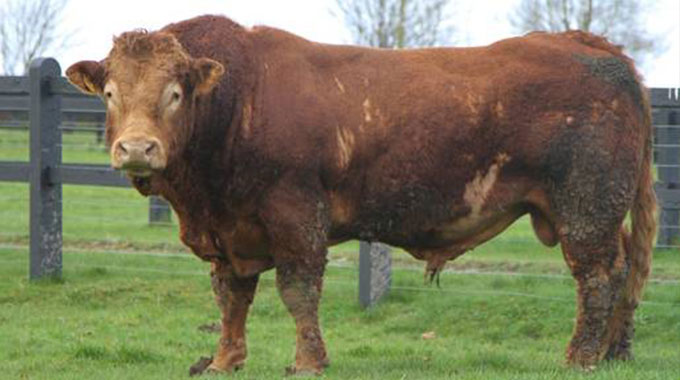
The Sunday News

Mhlupheki Dube
THE annual beef school has come and gone, this time in Bulawayo.
As expected, it lived to its usual top billing in terms of both being oversubscribed by participants and top-notch presentation from international experts in the beef production sector.
This week’s article seeks to share snippets from the beef school and inspire those that missed this year’s instalment to catch the 2020 beef school.
The axis of this year’s beef school was anchored on sharing use of precision technology to improve efficiency in beef production.
The precision technology which admittedly is two generations ahead of us, is without doubt the future of beef production.
The technology was on livestock identification and traceability using GPS-supported ear tags. The ear tags are said to provide more than identifying the animal but are also linked to the automated feeding regimes especially on dairy animals, to provide precisely the feed required by each and every animal.
In our context the tags could come in very handy in terms of disease surveillance and control as well as curbing stock theft.
It was the general consensus of most farmers present that the technology is way ahead of our time but it could be customised to address issues that are thorny for farmers in our country.
Chief among these issues is stock theft which farmers felt with GPS-supported ear tags it could become very easy to arrest and secure conviction for the culprits. Farmers, however, lamented the cost of such ear tags and the whole system as the cost is very high and discouraging despite the benefits that can be obtained from such an investment.
There was a call from some farmers to have a low-cost version of such ear tags which, however, are able to serve the same purpose of tracking the location of the animal using the GPS system.
Another issue which was apparent in terms of precision technology uptake by local farmers was that it is not yet priority as our farmers are grappling with basic requirements of production such as putting and maintaining boundary fences.
While precision technology in production has reached levels of having an almost completely automated abattoir operation in developed countries, it may take a while to have it come down to our area.
The beef school also shared the current trends in terms of breeding and selection in the beef sector.
It was revealed that the world is moving away from selecting for big framed animals but instead smaller framed animals are being preferred because of the huge feed requirements for the large frame animals.
The world now prefers medium framed animals which, however, pack enough meat on their bones. This is definitely good news for our smallholder farmers who have been investing in buying large frame animals so that they can yield better carcasses but face nightmares in maintaining the condition of such animals as most of the veld on which smallholder livestock farmers keep their animals is overstocked and overgrazed.
Bush encroachment was also noted as one phenomenon that is wiping out grazing land for cattlemen as more woody species replace the grass species. New herbicides for controlling bush encroachment were unveiled. It is my opinion that herbicides that control bush encroachment will be a game changer in veld management in the not so distant future. Farmers are losing grazing lands to invader species such as lantana camara as well as secondary acacia vegetation. These will need to be controlled to reclaim most of the rangeland that has been lost to these invader species. Those who are familiar with most small-scale commercial farmers which were previously known as purchase areas will concur that the areas have been drowned in bush encroachment severely reducing the carrying capacity of these farms. They will need to be reclaimed through such technology as the herbicide technology.
In conclusion it is worth noting that the beef school is an important interface platform where farmers meet and pick each other’s brains regarding a wide range of issues and it is always enriching to get presentation from international players in the beef value chain.
However, I could not help but notice the low turnout from farmers in Matabeleland as the school was highly attended by livestock farmers from Mashonaland. Is it because we don’t feel we should pay for knowledge or what?
Uyabonga umntakaMaKhumalo.
Feedback [email protected]/ cell 0772851275.



